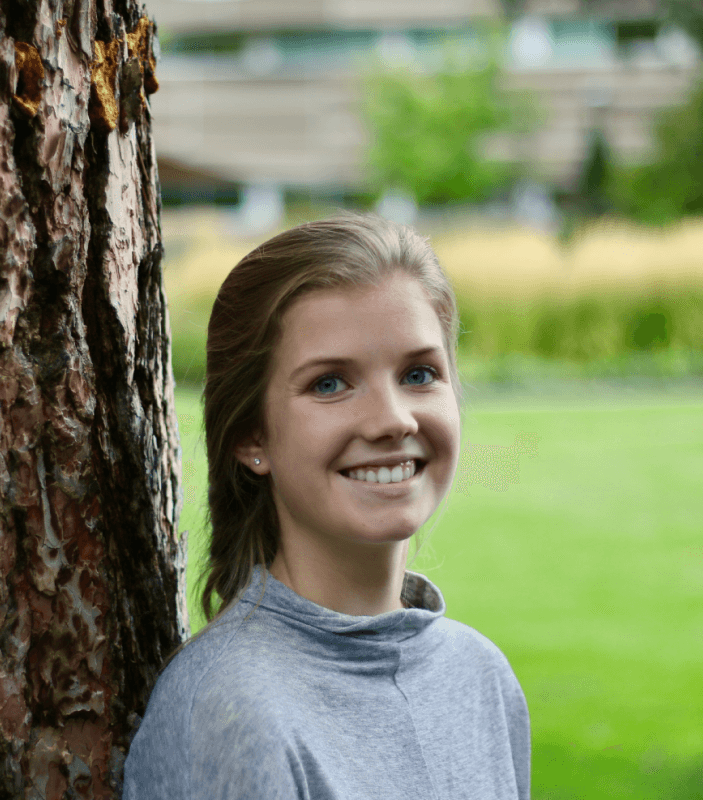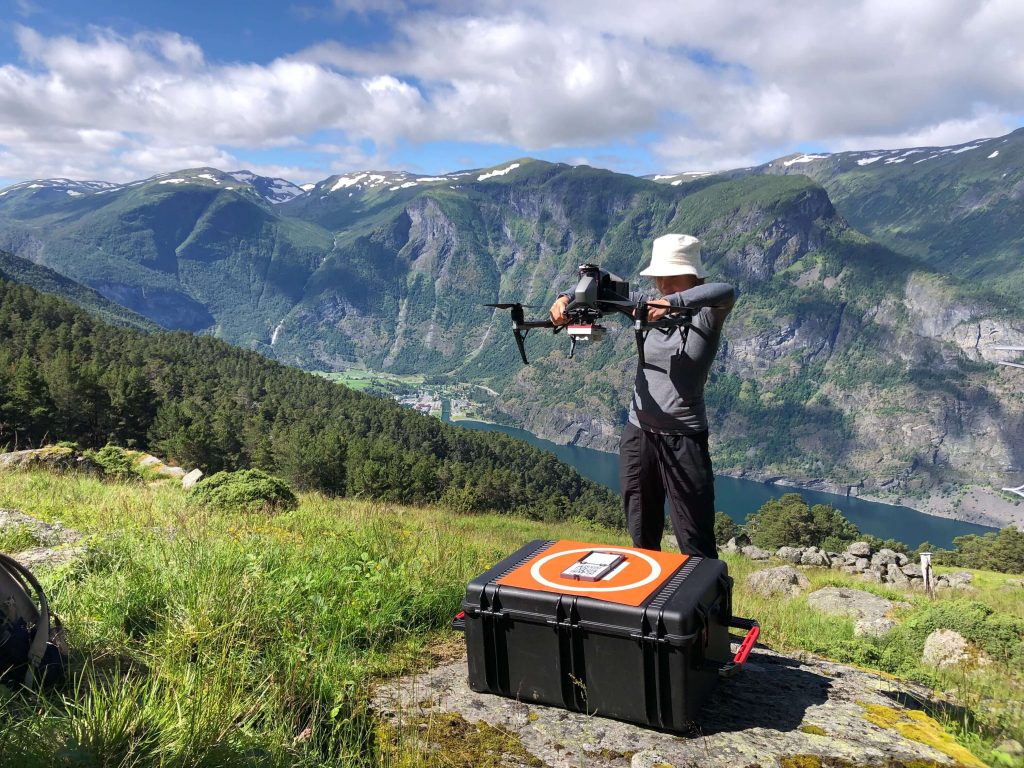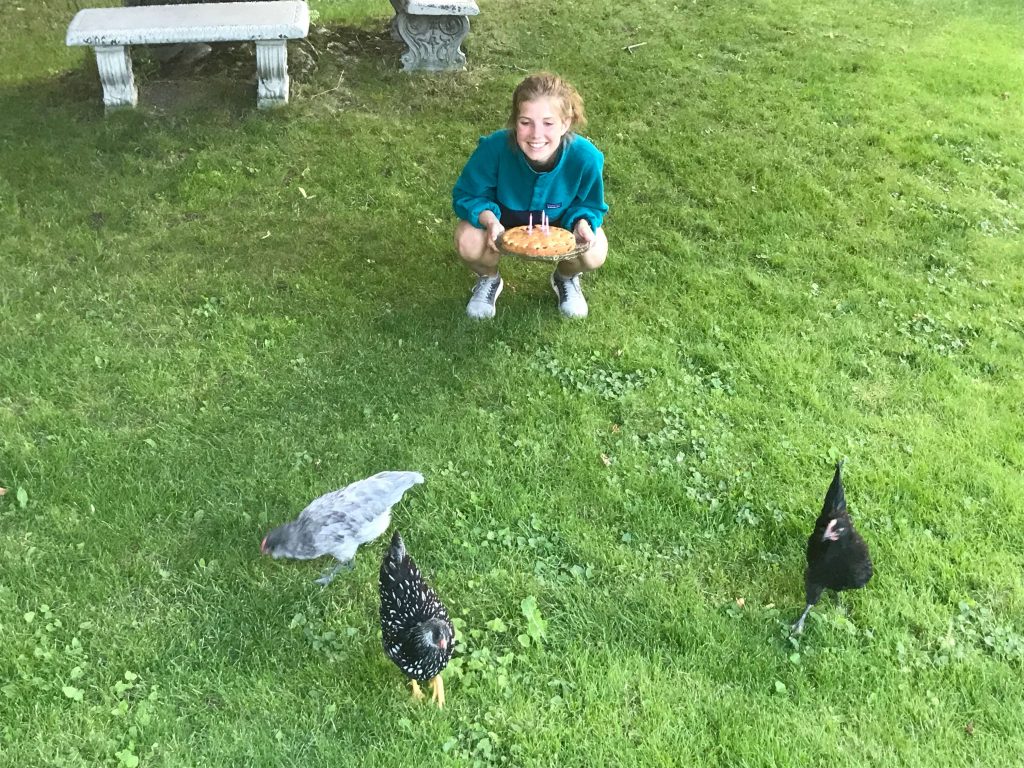
I’m a 2nd year MSc student in the UBC Physiological Ecology Lab. I’m originally from Kamloops, BC, where I completed my first two years of university before transferring to UBC to earn my BSc with a specialization in Ecology. At UBC, I completed an undergraduate thesis where I used mathematical models to evaluate key factors that cause the effects of wildfires on forests to vary seasonally.
My current research investigates leaf thermal tolerance: the temperature thresholds above which critical photosynthetic machinery becomes permanently damaged. I’m interested in how these are shaped by acclimation to local environments or species’ evolutionary histories. My research concurrently aims to develop new, more efficient ways of measuring leaf thermal tolerance including using leaf spectroscopy and remote sensing. I recently travelled to Norway for a field course where I learned how to collect aerial imagery using drones!

As an undergraduate, I had the opportunity to TA BIOL 306 (Advanced Ecology) which I really enjoyed, and I’ve continued to TA this course the following 3 terms!
What do you most enjoy about being a TA?
I really enjoy connecting with students, as I find that so many of them are enthusiastic and excited to learn. The students bring such a positive energy to my week! What I enjoy about TAing BIOL 306 in particular is that it focusses on an approach to ecology that is more mechanistic, and the concepts that we learn are often completely new to students. It’s so exciting to see students go through the exact same “ah-ha!” moments that I did when I took the same course several years ago. Helping students grasp new, difficult concepts is something that is really rewarding for me.
What has being a TA brought to your graduate studies experience?
Being a TA has really strengthened my time management skills since it requires balancing my research priorities with TA responsibilities. It has also helped me practice giving thoughtful and constructive feedback. I think that giving good, effective feedback is such an important skill for teaching and for research, and marking student assignments gives me lots of opportunities to practice this!
How has your unique background influenced your TA experience?
Over the past several years, I’ve taught science camps and workshops for elementary and high school students with the Eureka Science Program and Geering Up Engineering Outreach, and volunteered with youth science outreach initiatives include the Beaty Biodiversity Museum, Let’s Talk Science and Learning Buddies Network. Working with youth, it is really important to ensure I’m not accidentally using technical terms or referring to concepts that students haven’t encountered before. This is easier said than done, especially when you’re pretty comfortable with a topic. Being careful about these same things with adult students is equally as important, even though I think it’s more often forgotten. In my experience, explaining concepts in plain language and defining terms even if I think most students may have seen them before can make a big difference. One way I like to do this is by having students discuss any important terminology and concepts in small groups at the beginning of our session before moving forward. It’s such an easy and effective way to ensure that everyone is on the same page and gets the most out of the session!
What opportunities relating to teaching and learning have you been a part of?
Earlier this year (February 2022) I participated in a UBC Instructional Skills Workshop where I learned new teaching skills and principles for effective lessons. During these sessions, I prepared and delivered lessons and received feedback from peers about the strengths and weaknesses. This was a great opportunity, especially since I was working with graduate students from other departments with a range of backgrounds. These diverse perspectives made the feedback I received from these sessions so much more valuable. I hope to incorporate some of these skills in my TA duties in the coming years.
Do you have any advice for undergraduate students who want to gain research experience?
One of my favorite parts of teaching is when students share their research or career interests with me, and I get questions each term about how to get involved with research. I’ll often tell students that one great way is to talk with their professors and TAs about their research interests and ask whether they know of any opportunities. Many TAs are graduate students who need help running their experiments, or with other work, so they can be great resources for finding opportunities to get involved. I have personally TAed several students who have gone on to work as research assistants in our group. Those personal connections can really go a long way, so try and connect with the network of TAs and instructors that you have through your courses!
What do you like to do in your spare time?
I enjoy lots of different outdoor activities like rock climbing, mountain and road biking, and hiking. I also regularly visit my family at home in Kamloops, where I love to hang out with my chickens (pictured below on their 2nd birthday 🙂 ).

What is a memorable anecdote from your own undergraduate experience?
While I was completing my honours thesis in the Biology program, I had the opportunity to prepare a poster presentation for an international conference (American Geophysical Union) and present my research at the UBC Botany/Zoology research symposium. These were both really cool experiences because I really felt like I was contributing to the field. Presenting at our local research symposium was especially awesome because many of my former TAs were watching and one actually reached out to say how proud they were to see me there presenting my own research. I hope to see some of my own former students do the same in the coming years, and show them the same level of enthusiasm and support that I received.